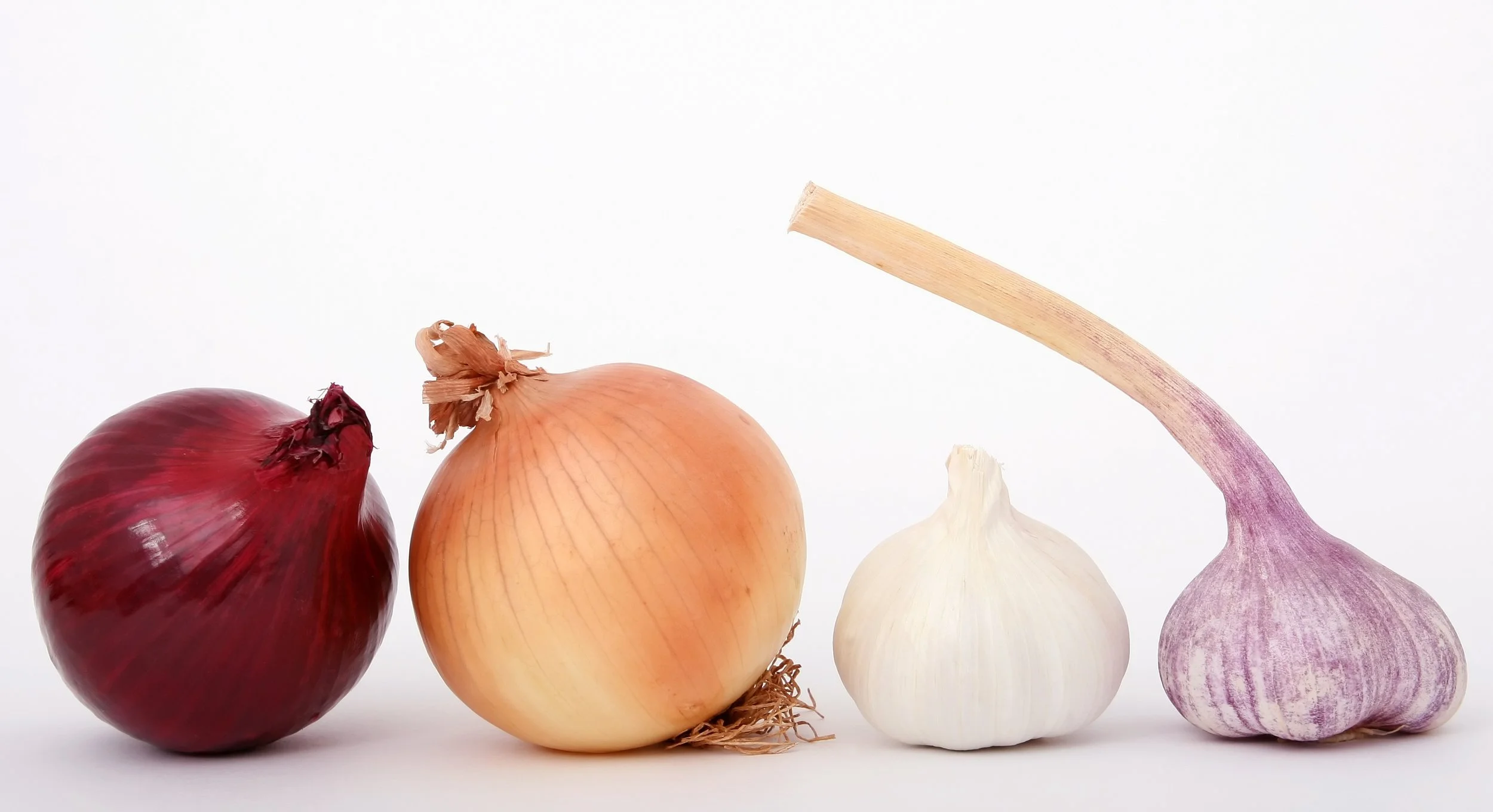Blood Pressure
is measured in millimeters of mercury when the heart is both contracting (systole) and at rest (diastole). A reading will measure the force of blood against the vessel wall. Factors such as stress, overeating, poor sleep, alcohol and tobacco smoke will increase heart rate and narrow the blood vessel, contributing to increased blood pressure. Blood pressure can change minute to minute and can change with posture, exercise and sleep. Over time blood pressure can become consistently elevated and increase the risk of heart attack, stroke, and other vascular disease. Diet and lifestyle modifications help manage blood pressure.
Consuming four stalks of celery per day has antihypertensive effects. Try eating veggie sticks as a snack, or add them chopped to a salad or a stir fry mix.
Increase garlic and onion consumption as these are a form of plant medicine that can lower blood pressure. They also reduce clotting which lowers the risk for stroke or heart attack.
Increase omega-3 consumption. This can be found in grass-fed beef, wild caught salmon, chia, and flax seeds.
Limit alcohol consumption as it can directly elevate blood pressure.
Increase magnesium rich foods which can help support blood vessels. Food sources for magnesium include soybeans, buckwheat, tofu, almonds, cashews, and legumes.


